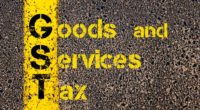The Union Ministry for Health and Family Welfare has set up an expert panel for preparing a comprehensive tax policy proposal for all tobacco products. The expert panel consists of nine members led by the Health Ministry additional secretary, Vikas Sheel. It also includes representatives of the Goods and Services Tax (GST) Council, Central Board of Indirect Taxes and Customs (CBIC), World Health Organization’s (WHO) country office for India.
Expert Panel Analysis
The panel will analyse the currently existing tax structure for all forms of tobacco, including smoking and smokeless products, with a public health perspective and develop a roadmap for the tobacco tax policy. It will suggest tax rates models, options or standards for consideration in the Union Budget 2022-23. It will develop a roadmap for reducing tobacco demand according to WHO’s plan.
Taxation on Tobacco Products
The tax revenue from cigarettes increased in FY 2020, which stood at Rs.356 billion compared to the previous years. In 2011, the tax revenue from cigarettes was Rs.152.86 billion, which increased to Rs.257.86 billion in 2015 and further to Rs.348 billion in 2019.
The tax-inclusive retail price percentage is about 52.7% for cigarettes, 22% for bidis, and 63.8% for smokeless tobacco. The tax-inclusive retail price percentage is much lower than the WHO recommended tax burden of at least 75% of the retail price for all tobacco products. According to WHO, increasing the cost of tobacco products through imposing taxes is the most effective policy to reduce tobacco usage.
GST on Tobacco Products
The tobacco products are in the 28% GST slab. However, the GST slab for tobacco leaves is 5%. Tobacco and its various forms are also subject to a heavy cess as they are considered sin goods. The cess on unmanufactured tobacco bearing a brand name is 65%.
For cigars, the cess is 21% or Rs.4,170 per 1,000 sticks, whichever is higher. However, there has not been any significant increase in taxes on tobacco products since the introduction of GST in July 2017. As per the WHO, more taxes on tobacco products will reduce tobacco usage and develop an effective tobacco tax policy from a health perspective.
Increasing the existing compensation cess on tobacco products will also help raise revenue by the Central Government to compensate states for their GST revenue shortfalls during the pandemic. An effective tax policy for all tobacco products will help to generate revenue and reduce tobacco use, thus improving public health.
Join our Telegram channel to keep getting updates on all things finance.
For any clarifications/feedback on the topic, please contact the writer at mayashree.acharya@cleartax.in

I am an Advocate by profession. I interpret laws and put them in simple words. I love to explore and try new things in life.





